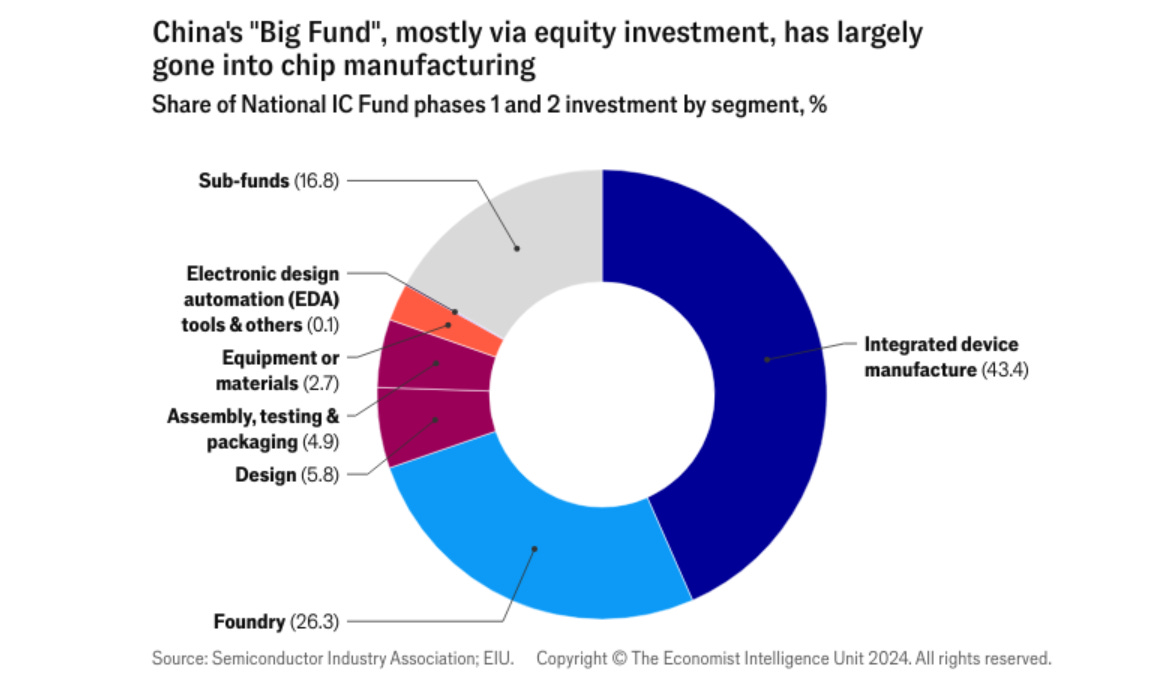Last week, we extensively discussed the potential monopoly of ASML. Inevitably, one of the risks that comes up is China, which we covered in depth in our premium analysis. However, we believe China alone won’t make or break this investment.
Let’s highlight three risks when we talk about China:
Risk 1: “The U.S. or Dutch government can ban not only the export of EUV machines to China, but also that of DUV machines.”.
ASML's largest customer in China is SMIC, the country’s most advanced semiconductor foundry. Due to export restrictions, SMIC is prohibited from using EUV machines, which prevents it from economically producing the most advanced chips (under 7 nanometers). Despite this, the U.S. is intensifying its pressure on the Netherlands to halt both the sale and maintenance of DUV machines to China. Fouquet has noted that these restrictions are "economically motivated," suggesting they aim not only at security concerns but also at slowing China's economic ascent.
For now, ASML continues to supply and maintain DUV machines in China. However, if a future ban on DUV exports or maintenance is enforced, resulting in ASML losing all of its China-based revenue, the company stands to forfeit approximately 10-20% of its total revenue. While this represents a significant portion, it is unlikely to undermine the fundamental investment thesis for ASML.
Risk 2: “China is investing heavily in developing its own chip industry, and it may eventually succeed in producing its own DUV or even EUV machines.”.
China is investing hundreds of billions of dollars in building its own chip industry.
SMIC, China's largest foundry, is heavily reliant on ASML’s DUV machines for production. Should China succeed in developing its own advanced lithography machine (a necessity given the export restrictions on ASML), this machine would likely only be used within China. The manufacturing processes of TSMC and other global manufacturers are so integrated with ASML’s machines that switching would not be feasible. Furthermore, it would be somewhat paradoxical for Taiwan (a country that China aims to occupy) to rely on Chinese-made machines for its most critical chip production processes. Also in this case, the total revenue loss for ASML would be 10-20% (all revenues from China).
Risk 3: “If China were to occupy Taiwan, the impact would be significant, as ASML’s largest customer, TSMC, has the majority of its fabs located there.”
To give you some background information: China views Taiwan as an apostate province. To understand this, we must go back to the Chinese Civil War between the communists and nationalists, which ended in 1949. The communists won the war, and the nationalists fled to Taiwan, which has since functioned as an independent entity, though not recognized as such by China. Despite the political and cultural differences between Taiwan and China, China considers Taiwan a part of its territory under the ‘One China’ policy. Chinese President Xi Jinping has declared it a national goal to reunify the countries, which Taiwan strongly opposes. The likelihood of China invading and annexing Taiwan in the future is significant, and such an action would have dramatic consequences not only for Taiwan and ASML, but also for the rest of the world.
TSMC would no longer be able to produce chips in Taiwan, and ASML could remotely disable its machines in Taiwanese fabs through embedded software. Nevertheless, without a fully operational TSMC, the global economy would come to a halt, and ASML would also feel financial pain.
Thankfully, TSMC has not only fabs in Taiwan but also has an operational fab in Japan (with a second fab planned that will be operational by the end of 2027) and is heavily investing in fabs in the U.S. (Arizona) and Europe (Dresden). The fact is, and will be for quite some time, that most volume and the most advanced chips will be made in Taiwan. An attack on Taiwan will lead to significant problems in the value chain in nearly all electronic devices.
But electronic devices, such as a refrigerator, smartphone, laptop or sound speaker, must and will be made. For that, fabs in other countries will expand heavily or must be built from the ground up. In those expanded or new fabs must be placed a lithography machine of ASML. So our prediction is that if Taiwan gets attacked by China, it will be a short term (< 3 years) problem for ASML. In the longer run, capacity must be rebuilt and ASML will still sell its machines.
In our opinion:
After extensive research into ASML, including a two-part analysis for our members, we believe that while China could pose serious challenges for ASML, it won’t make or break the overall investment case. China might create short-term pressures on sales growth, which has averaged 20% annually since 2018, but we believe ASML’s future looks bright.
As always, thank you for reading. In this article we only talked about a small part of our full ASML analysis. If you want to get access to Part 1 & Part 2 of the ASML analysis, we would love to welcome you on our platform.
Have a wonderful day and happy investing.
The Dutch Investors






